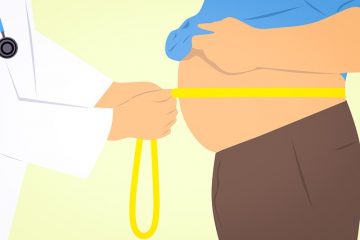Last Updated on March 10, 2025 by Alexander Sennuga
Find below an in-depth discussion on diabetes reverse. The occurrence of diabetes is rising globally. Many diabetes patients are then quite curious to know whether diabetes (type 1, type 2, and gestational) is reversible or not. Prediabetics are also interested. Even when they get to know that it is possible, the next thing is how to go about it and get the desired result.
Focusing on type 2 diabetes, it is no longer news that this disease has two major risk factors:
- wrong lifestyle, and
- unhealthy dietary habits
Therefore, it is logical to agree that as with any disease, getting to know the root cause makes its reversal possible.
This post will, therefore, shed some light on ways to help type 2 diabetics reverse the disease.
Let’s dive in.
Reversing Diabetes
There are 3 common types of diabetes:
- Type 1 diabetes
- Type 2 diabetes
- Gestational diabetes
Let us discuss type 1 and type 2 – the most common of the three types.
How is type 2 different from type 1 diabetes?
Type 1 diabetes is similar to type 2 diabetes, but it usually develops during childhood and is largely unrelated to weight or diet. The exact causes of type 1 diabetes are unknown. The most important risk factors are genetics and family history.
If you have type 1 diabetes, your pancreas makes little to no insulin. You need to inject insulin regularly to metabolize glucose.
[Source: [Healthline]
Diabetes Can Be Reversed
There are a number of things to consider here:
Is There A Cure for Type 2 Diabetes?
Although there are unscientific claims here and there that a cure has been found. But, none of them has been confirmed by suitable medical authorities.
This being the case, the short answer is No – at least for now.
Can Type 1 Diabetes Be Reversed?
At the moment, type 1 diabetes cannot be reversed.
Type 1 diabetes is an autoimmune disease, and reversing it would require a method of preventing the body’s immune system from attacking its own insulin-producing cells.
[Source: [diabetes.co.uk]
Type 1 diabetes is hereditary, that is, it is inherited from parents, grandparents, and so on.
For now, there is no cure. But researches are in progress to find one.
It has nothing to do with lifestyle or dietary errors, thus making it impossible to reverse. Until science has found a cure, the patient may have to continue with medical interventions.
Is it Possible to Reverse Type 2 Diabetes?
We know well now that type 2 diabetes is a diet-and-lifestyle disease. An exception to this is when it has to do with genetics. If we then pay adequate attention to embracing a healthy diet and the right lifestyle, we can tackle this disease.
Read on.
Can Diabetic Neuropathy Be Reversed?
The most common complication (60 – 70%) resulting from untreated diabetes is diabetic neuropathy – nerve damage.
To date, there is no evidence that this can be reversed. However, there is a lot of work in progress to find a way to achieve this.
Let us hope it will one day happen.
Reversing Prediabetes
Prediabetes means a blood sugar level that has not reached the diagnostic level, that is, diabetes type 2 stage.
It makes sense to believe that if type 2 diabetes is reversible, then prediabetes should even be reversible. In other words, applying the same measures to reverse type 2 diabetes can help to tackle prediabetes (1, 2)
Let us wait, therefore, for the discussion about reversing type 2 diabetes below.
Reversing Type 2 Diabetes
Here we go.
There may be arguments, disagreements, disbeliefs, etc. when the topic of reversing type 2 diabetes comes up.
Type 2 Diabetes Can Be Reversed

There is abundant evidence to support the fact that this disease is largely a diet-and-lifestyle disease. And this then makes it a reversible disease.
How?
- Diet can be modified
- Lifestyle is controllable with focus and determination
- Patients do get better once they do the right things, anyway
But, there is a common stumbling block that can cause failure:
What is it?
Addiction!
When a person cannot take control of anything and therefore becomes a slave to it, changing for the better becomes an illusion. An example is when a person is addicted to eating sugary foods. Yet, the root cause of his bad health is sugary foods.
He would not want to believe his medical condition is reversible. It is that simple. Do you agree?
Let us move on.
How do you achieve diabetes reverse?
The strongest evidence we have at the moment suggests that type 2 diabetes is mainly put into remission by weight loss. Remission is more likely if you lose weight as soon as possible after your diabetes diagnosis. However, we do know of people who have put their diabetes into remission 25 years after diagnosis.
If you have obesity, your diabetes is more likely to go into remission if you lose a substantial amount of weight – 15kg (or 2 stone 5lbs) – as quickly and safely as possible following diagnosis.
It’s important to know that not everyone who loses this much weight will be able to put their diabetes into remission. But losing 15kg comes with a lot of health benefits, even if you don’t lead to remission. Research shows that getting support to lose just 5% of your body weight can have huge benefits for your health. Losing extra weight can lead to:
• fewer medications
• better blood sugar levels
• a lower risk of complications.
[Source: diabetes.org.uk]
Can diabetes be naturally reversed?
It is a fact that medical therapies are geared toward the symptoms of diseases. Diabetes is no exception. This means we have to find other types of therapies to be applied. This is where reversing type 2 diabetes naturally comes in.
It is also a fact that if we set out to reverse a disease, we must direct our efforts toward finding the root cause. When this is figured out, the next step would be to attack and ‘kill the root (the cause)’. Then we are in a position to ‘kill the fruit (diabetes)’.
What then is the way out of type 2 diabetes?
There are proven strategies to reverse type 2 diabetes naturally.
What are they?
#1. A Strong Will for Accomplishment
You must aim to do what it takes to get the intended result. Many patients do get better from this disease and reverse the disease without drugs. Some even succeeded in putting it into remission – came off medication. So, why not you also?
You are in the driver’s seat of your health. If you are not proactive in this goal, no one will.
In fact, this was what I did to be able to reverse my own type 2 diabetes within 8 weeks.
What else?
#2. Carry On Your Healthcare Providers
It is not enough to set out to want to reverse this disease. All the implementation processes must get the approval of your doctor. He may involve a registered dietitian/nutritionist to offer their specialized services as well.
You will need to show them your results as you move on in the journey of your health improvement.
You cannot do it all alone.
How do we monitor?
#3. Own The Necessary Tools
- A Glucose meter
- Blood test strips
- Lancets
Of course, your healthcare team will be happy to teach you how to use the tools – quite easy, anyway.
What else?
#4. Guard Against Obesity

One medical problem linked to type 2 diabetes is overweight, known as obesity. Excess weight reduces insulin sensitivity. Success to shed excess weight has been found to promote reversing diabetes (1, 2)
You need to aim to have your body mass index (BMI) around 23.
What else?
#5. Exercise (Be Active)

Related to shedding excess weight is physical exercise.
Health experts do advise that one of the best ways to improve insulin sensitivity is to have regular exercise. Of course, type 2 diabetics would help themselves if they take this advice on board.
What else?
#6. Adequate Rest
One healthy practice that can help you out of type 2 diabetes is having enough daily sleep. Sleep deprivation leads to insulin resistance. Experts recommend at least 7 hours of sleep daily.
Let us now move on to discuss a very important strategy.
Can medication or bariatric surgery help?
Taking a drug called metformin is another strategy for controlling prediabetes.
Data from the Diabetes Prevention Program suggests taking metformin could delay type 2 diabetes in people at high risk of diabetes. According to the NIDDK Trusted Source, the drug was most effective in women who had diabetes during pregnancy, people with obesity, and younger adults.
The drug may have side effects, including:
- diarrhoea
- nausea
- vomiting
- flatulence
Bariatric surgery, such as gastric bypass, may lead to remission Trusted Source of type 2 diabetes.
Research suggests that the surgery may also benefit people with prediabetes. A study in The Lancet Diabetes and Endocrinology Trusted Source looked at a type of diabetes complication, called microvascular complications, in obese individuals. Fewer of these complications occurred in those who received bariatric surgery compared to a non-surgical group.
A person with prediabetes who is considering metformin treatment or bariatric surgery should discuss the pros and cons of the treatment with their doctor.
[Source: medicalnewstoday.com]
Reverse Diabetes Diet

I choose to discuss this last because of the all-important position it occupies in reversing type 2 diabetes.
There is a common saying: “You are as good as what you put into your mouth”
What does this mean?
It speaks volumes. Almost everything that happens to us is due to the foods and drinks we consume. Our appearance, mood, health, etc.
Diabetes type 2 to a very large extent is a diet disease. Therefore, it would appear that if we want to manage, control, reverse, or put into remission, we must pay proper attention to our diet.
What then are the foods diabetics must eat to achieve this goal?
Everyone needs these kinds of foods for daily living.
- Carbohydrates in the form of starch
- Protein
- Vegetables
- Fruits
- Dairy
- Fats, oils, and sweets
- Drinks
How should diabetics use this information?
Diabetics aiming to reverse the condition will have to make special choices among foods and drinks. Some diabetes patients, for fear of getting blood sugar spikes, just refrain from eating certain foods and drinks.
Should this be the best approach?
I don’t think so. What I think we can do is seek the professional support of a doctor, a registered dietitian/nutritionist. Almost without exception, every food contains some good as well as bad ingredients.
In other words, the best approach is to select the best starchy, protein, fatty, etc. foods and drinks. And then avoid the worst ones.
Conclusion
FAQ
**Q: What is diabetes reverse?**
A: Diabetes reverse refers to the process of managing and potentially reversing the effects of diabetes through lifestyle changes, such as diet, exercise, and medication. By adopting healthy habits, individuals with diabetes can improve their blood sugar control and reduce the risk of complications.
**Q: Can diabetes be reversed naturally?**
A: Yes, diabetes can be reversed naturally through lifestyle modifications. By making dietary changes, engaging in regular physical activity, losing weight (if overweight), and managing stress levels, individuals can improve their insulin sensitivity and control their blood sugar levels.
**Q: What are some key lifestyle changes for diabetes reversing?**
A: Some key lifestyle changes for diabetes reverse include adopting a balanced and nutritious diet, engaging in regular physical activity, maintaining a healthy weight, managing stress effectively, getting enough sleep, and quitting smoking if applicable. These changes, when implemented consistently, can help manage and reverse the effects of diabetes.
**Q: Can diabetes reverse without medication?**
A: Diabetes reversal can be achieved without medication for some individuals, particularly those with type 2 diabetes. By implementing healthy lifestyle changes, such as improving their diet and increasing physical activity, some people can effectively control their blood sugar levels without the need for medication. However, it is essential to consult with a healthcare professional to determine the most suitable approach for each individual.
**Q: Are there specific diets that aid in diabetes reverse?**
A: Several diets have shown promise in aiding diabetes reverse. Examples include the Mediterranean diet, which emphasizes whole grains, fruits, vegetables, lean proteins, and healthy fats; the DASH (Dietary Approaches to Stop Hypertension) diet, which focuses on reducing sodium intake and increasing consumption of fruits, vegetables, whole grains, and lean proteins; and a low-carbohydrate diet, which restricts the intake of carbohydrates. These diets can help control blood sugar levels and promote overall health.
**Q: Is weight loss essential for diabetes reverse?**
A: Weight loss can play a significant role in diabetes reverse, especially for individuals who are overweight or obese. Losing excess weight can improve insulin sensitivity, making it easier to manage blood sugar levels. However, it’s important to note that even modest weight loss can have positive effects on diabetes control and overall health.
**Q: Can stress management contribute to diabetes reversing?**
A: Yes, effective stress management techniques can contribute to diabetes reverse. Chronic stress can affect blood sugar levels and insulin sensitivity. By adopting stress-reducing practices such as exercise, meditation, deep breathing, and engaging in hobbies or activities that bring joy, individuals with diabetes can help improve their overall well-being and better control their blood sugar.
**Q: How long does it take to reverse diabetes?**
A: The time required to reverse diabetes varies from person to person. It depends on factors such as the individual’s overall health, the severity of their diabetes, and their commitment to lifestyle changes. Some individuals may experience improvements in blood sugar control within a few weeks or months, while others may take longer. Consistency and ongoing management are key to achieving diabetes reversal.
**Q: Can diabetes reverse help prevent complications?**
A: Yes, the diabetes reverse can help prevent complications associated with diabetes. By effectively managing blood sugar levels, individuals can reduce the risk of developing complications such as heart disease, kidney problems, nerve damage, and eye conditions. It is important to work closely with healthcare professionals to monitor and address any potential complications or risks.
**Q: Should I consult a healthcare professional for diabetes reverse?**
A: It is highly recommended to consult a healthcare professional for diabetes reversal. They can provide personalized guidance, monitor your progress, and ensure that your approach to diabetes management aligns with your specific needs. A healthcare professional can also help adjust any medication requirements and address any potential risks or concerns.
Very Important: PLEASE note that all information provided on this site is for educational purposes only. They should not be used for medical advice, diagnosis, or treatment. So, please consult with your doctor and/or registered dietitian or nutritionist for any professional advice before applying any of the information on your health issues.

